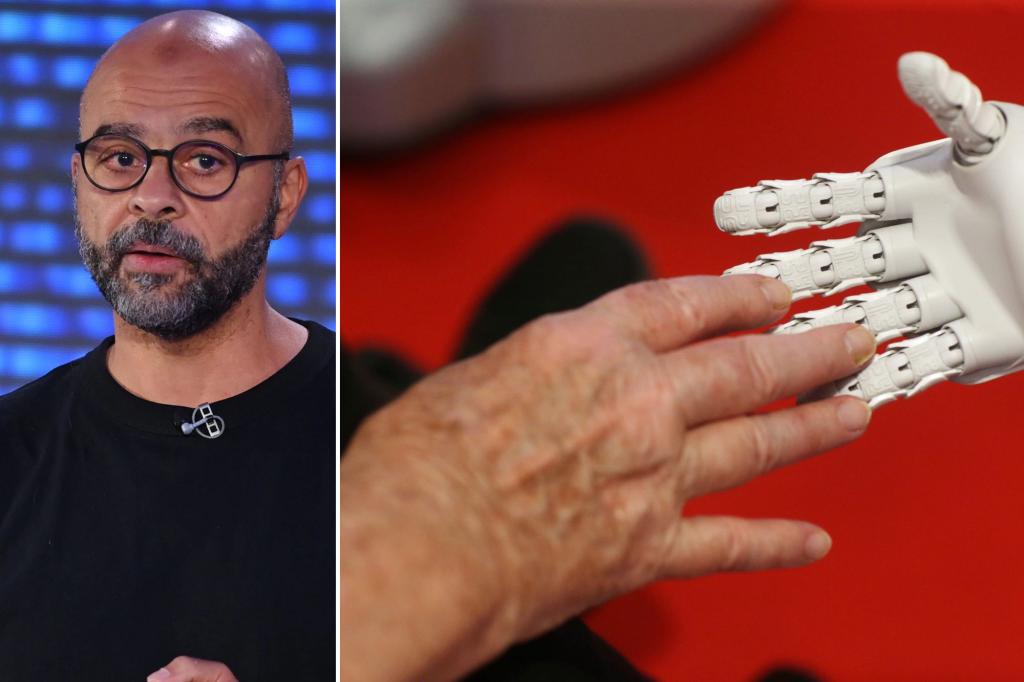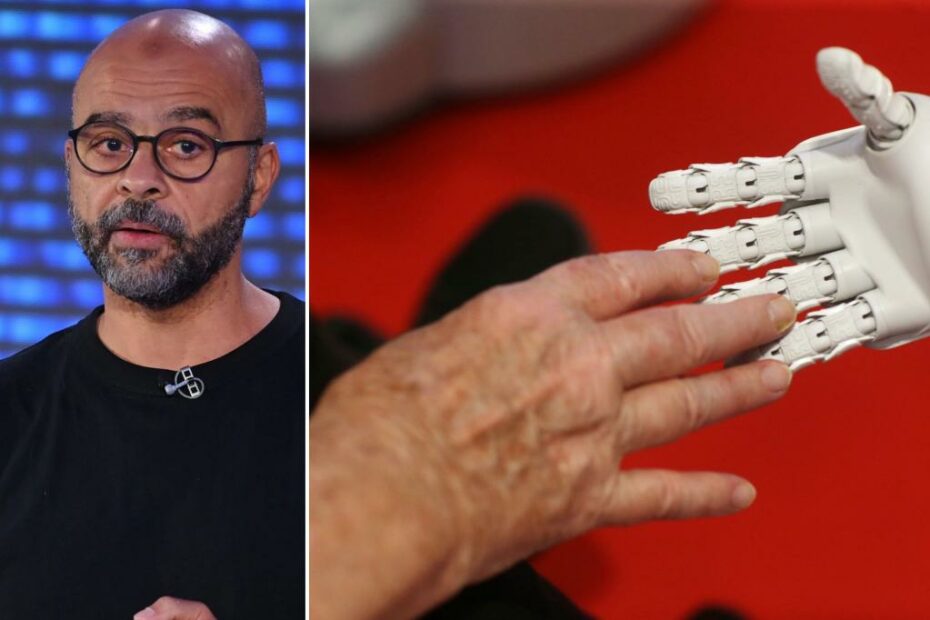AI-powered sex robots will seem ‘alive’ and negate need for partner, ex-Google exec says
Sex Robots Powered by AI Could Replace Human Partners, Former Google Executive Says
In a bold prediction, Mo Gawdat, a former senior executive at Google, has suggested that sex robots equipped with artificial intelligence (AI) could potentially eliminate the need for human partners in the bedroom. Gawdat, who was previously the chief business officer for Google’s secretive research-and-development arm, X, believes that AI will bring about a transformation in love and relationships, blurring the lines between real-life sexual encounters and those that are artificially created.
During an interview with YouTube host Tom Bilyeu on the “Impact Theory” podcast, Gawdat explained that advancements in technology will soon allow human beings to simulate sex through virtual reality and augmented reality headsets. He specifically mentioned Apple’s Vision Pro and the Quest 3 as examples. By combining these headsets with AI-powered bots, people could be tricked into believing that the sex robot they are interacting with is real.
Gawdat emphasized the power of illusions and our inability to decipher them. He argued that if technology can convince individuals that a sex robot is alive or that a sex experience in a virtual or augmented reality headset is real, then it essentially becomes real to them. He further noted that as technology continues to advance, computer-backed systems may even be able to link into the human brain, creating the illusion of interaction with a peer.
The former Google executive questioned the need for human relationships altogether. He suggested that futuristic technologies like Neuralink, developed by Elon Musk’s company, could enable direct connections to the human nervous system. Gawdat commented on the complications and messiness of real-life relationships, indicating that if technology can simulate all the mental and emotional stimuli associated with intimacy, there may be no need for human partners.
Gawdat dismissed the ongoing debate surrounding whether AI-powered bots can be considered sentient, stating that it doesn’t matter as long as the human brain is convinced they are real. He compared the situation to interacting with an AI-generated avatar of Morgan Freeman, questioning whether it truly matters if the brain believes it is the real Morgan Freeman if the experience is convincing enough.
While some have expressed concerns over the potential implications of AI replacing human partners, examples of individuals engaging with AI-powered bots have already surfaced. For instance, a 23-year-old Snapchat influencer named Caryn Marjorie created a ChatGTP-powered doppelgänger of herself that engages in erotic pillow talk. Additionally, Rosanna Ramos, a 36-year-old mother of two from the Bronx, virtually “married” an AI bot created through the Replika app, which uses AI to mimic human texting styles.
As AI continues to advance, fears have arisen that bots could eventually replace humans in knowledge-based industries, leading critics to call for restrictions on research and development in this area.
FAQs:
Q: What did Mo Gawdat predict regarding sex robots and AI?
A: Gawdat predicted that sex robots powered by AI could eliminate the need for human partners in the bedroom, as advancements in technology would make it increasingly difficult to differentiate between real-life sexual encounters and artificially created ones.
Q: How will AI and virtual reality be used to simulate sex?
A: Gawdat explained that virtual reality and augmented reality headsets, such as Apple’s Vision Pro or a Quest 3, can be combined with AI-powered bots to trick individuals into thinking they are engaging with a real sex robot or having a genuine sexual experience.
Q: Can AI replicate the mental and emotional stimuli associated with intimacy?
A: Gawdat believes that AI can replicate the signals in the brain that provide enjoyment from companionship and sexuality. He suggests that if the magic of these experiences is taken out, they can be simulated through technology.
Q: Does whether or not AI-powered bots are sentient matter?
A: Gawdat argues that the debate over whether AI-powered bots are sentient is irrelevant as long as the human brain is convinced they are real. He emphasizes that the brain’s belief in their authenticity is what ultimately matters.
Q: Have there been any examples of individuals interacting with AI-powered bots?
A: Yes, examples include a Snapchat influencer creating a ChatGTP-powered doppelgänger for erotic conversations and a woman virtually “marrying” an AI bot created through the Replika app, which uses AI to mimic human texting styles.
Q: What concerns have been raised about AI replacing humans in knowledge-based industries?
A: Some critics have expressed fears that AI advancements could lead to the replacement of humans in knowledge-based industries. This has prompted calls for restrictions on research and development in this field.

Ex-Google exec predicts AI-driven sex robots will possess lifelike qualities, rendering the necessity for human partners obsolete
A former senior executive at Google has made a bold prediction about the future of sex and relationships. Mo Gawdat, who previously held the position of chief business officer for Google’s secretive research-and-development division X, believes that advancements in artificial intelligence (AI) will soon lead to the creation of sex robots capable of replacing human partners in the bedroom. Speaking on the “Impact Theory” podcast hosted by Tom Bilyeu, Gawdat claimed that AI-powered bots combined with virtual reality and augmented reality headsets will be able to trick people into thinking they are having a real sexual experience.
Gawdat argued that as technology advances, computer-backed systems will be able to link directly with the human brain, creating the sensation of interacting with a peer. He even suggested that the mental and emotional stimuli that come with intimacy can be replicated artificially. “It’s all signals in your brain that you enjoy companionship, and sexuality, and… it can be simulated,” he explained. Gawdat dismissed the ongoing debate about whether AI-powered bots can be considered “sentient,” noting that it is irrelevant if the human brain is convinced they are real.
The potential implications of such a development are vast, raising questions about the future of human relationships and the very nature of love. Gawdat mused about a future where individuals could forego human partners altogether, relying solely on AI for companionship. He likened real-life relationships to being messy and suggested that technological advances could eliminate the need for another being entirely.
These predictions come at a time when AI’s role in society is already under scrutiny. Critics have expressed concerns that bots powered by AI could replace humans in knowledge-based industries, leading to calls for research and development in the field to be halted. However, Gawdat’s remarks suggest that the integration of AI into intimate aspects of human life may be more imminent than previously thought.
While such breakthroughs in AI may be met with skepticism and ethical debates, Gawdat maintained that if the brain is convinced of the bot’s “aliveness,” then it becomes a reality for the individual. As the development of AI progresses at a rapid pace, it seems that the “redesign of love and relationships” may indeed be on the horizon, potentially forever altering the way we perceive and experience intimacy.
